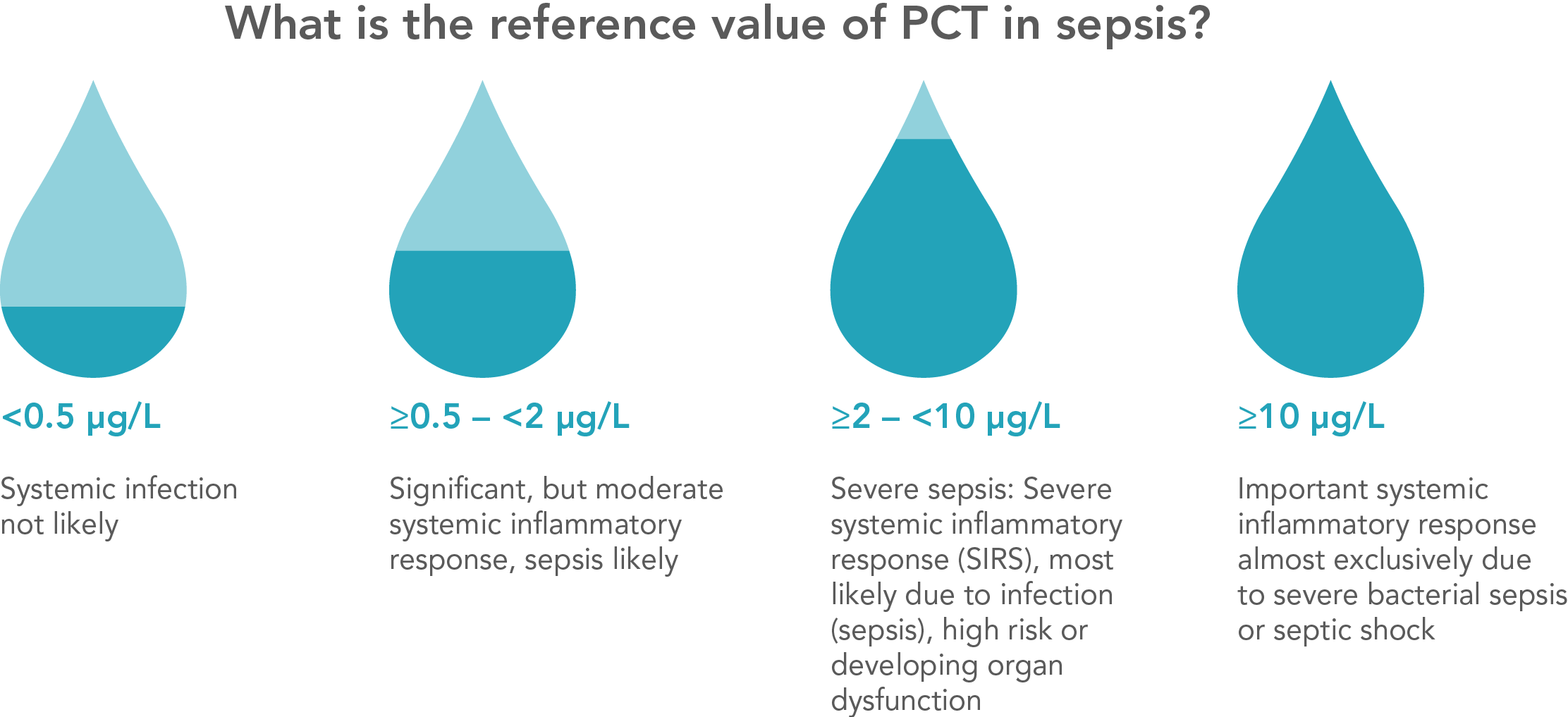Procalcitonin (PCT) is the precursor of the hormone calcitonin, which in normal metabolic conditions is mainly produced by the C-cells of the thyroid medulla and to a lesser extent by other neuroendocrine cells. The blood of healthy individuals contains only very low levels of PCT. Following pro-inflammatory stimulation (particularly systemic bacterial infection), PCT is produced by numerous cell types. PCT affects the immune response by modulating the induction of pro-inflammatory cytokines. It also acts as a chemokine, influencing the migration of monocytes and parenchymal cells to the site of inflammation. PCT plays a role in vascular contraction through inhibiting or activating the induction of inducible NO‐synthase. It elevates in plasma when severe bacterial, fungal, parasitic infections, sepsis and multiple organ failure occur.

NOTE: PCT is not only an acute indicator for differential diagnosis, but also a parameter for monitoring inflammatory activity. The detection of PCT should be a series, namely daily detection and short interval detection in special cases, such as every 8-12 h. Even a single test for acute differential diagnosis should continue to be monitored.

